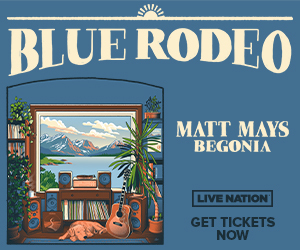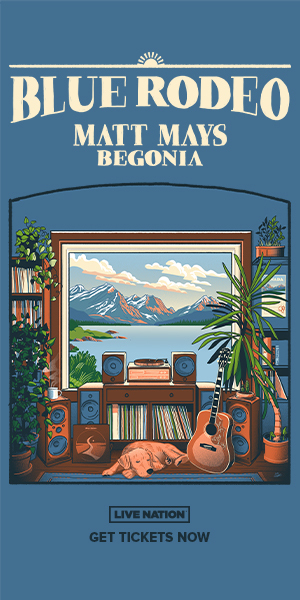Four Questions: Greg Keelor
A Canadian music legend, Blue Rodeo’s Greg Keelor has been hard at work over the pandemic. His just released latest solo record, Share the Love, is out after over a year-and-a-half of writing and recording—and re-recording— so it’s clear that, even after a lifetime of Canadian music icon status, Keelor has no intentions of slowing down. And here’s a tip from Keelor: sad is not always bad.

A Canadian music legend, Blue Rodeo’s Greg Keelor has been hard at work over the pandemic. His just released latest solo record, Share the Love, is out after over a year-and-a-half of writing and recording—and re-recording— so it’s clear that, even after a lifetime of Canadian music icon status, Keelor has no intentions of slowing down. And here’s a tip from Keelor: sad is not always bad.
The pandemic has slowed everything down. How has it changed the way you make music?
Completely. I’ve had trouble with my ears; I’ve had tinnitus for 30 years. So it’s been nice to give my brain a rest. It’s given me time to recoup and focus on singing and writing songs.
One thing that’s been different about the pandemic that I really enjoy is how performers are using Facebook, Instagram and livestreams. That’s been a really nice way to connect with the artists that you love and for them to connect with you. It’s so intimate.
Tell us about the making of this “pandemic” record.
This record was actually recorded twice. We did a studio version a year and a half ago, and that was set to go: mixed, mastered, a release date. The idea of going to a retreat and recording and filming these songs was just to have a lot of emotional, promotional material for the release.
So we recorded the nine songs and did some alternates, and when we heard it back, it just had an energy to it—we just knew it was better. It had a connection and a spirit. We knew we had to release the album with those recordings.
What’s the inspiration behind these tracks?
Writing the songs and recording them was very cathartic. These songs are about a time in my life when a very good friend of mine had died, and the woman I’d been going out with for five years, we’d just broken up; so I’d been in this melancholic landscape for quite some time.
A large part of my musical being comes from the landscape of melancholy. I love a sad song. I love to be at a party and sing the saddest song. I’ll always have a sadder song than anyone else.
I love that emotion—Frank Sinatra, Tom Waits, Nick Drake, those songs that break your heart. That’s the great thing about music—you can put on a sad song and it’ll break your heart for three minutes, and then it’s over and you can do whatever you have to do.
Was this record therapeutic, turning that pain into something beautiful?
Yes, absolutely. There’s something so nice about being devastated. It takes you out of the world and puts you in a very sympathetic and empathetic state of mind. I’m very lucky I get to sing about it. There’s something about singing that is very soothing to a broken heart. It’s an amazing thing that songs can do.
Related Stories
You Might Also Like
Katie Crutchfield powers Waxahatchee down-home heights
Massey Hall perfect setting for Crutchfield’s fresh and personal Americana
By Michael Hollett






